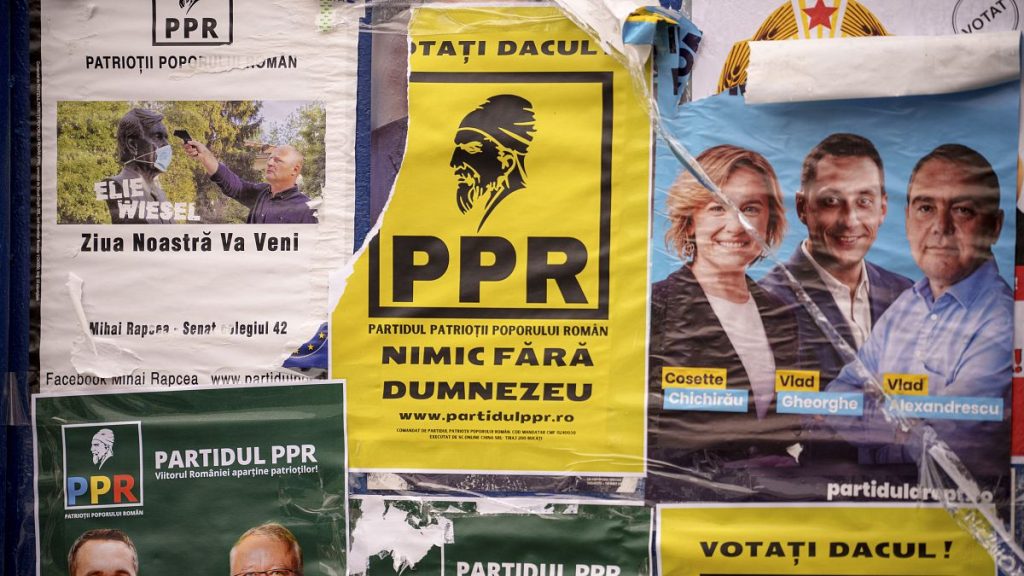Polling stations across Romania witnessed a significant influx of voters as the nation participated in a critical parliamentary election. The political landscape in Romania was notably tumultuous, especially following the recent first round of the presidential election, which resulted in unexpected outcomes. Călin Georgescu, a relatively obscure populist candidate, garnered approximately 23% of the vote, much to the dismay of established political figures. This parliamentary election is deemed crucial as it will shape the country’s governance structure, determining who will take on the roles of Prime Minister and governing parties. The recent improbable results from the presidential race have raised concerns that they will overshadow the parliamentary vote and its implications on Romanian politics.
The rising tensions following the presidential election are compounded by the fact that while the president holds significant influence over national security and foreign policy, it is the Prime Minister who oversees the daily operations of the government. Georgescu’s campaign was unconventional, relying heavily on social media platform TikTok while recording no financial spending on campaign activities. His dramatic surge in support, going from just 5% in pre-election polls to leading in the vote stakes, has prompted speculations of irregularities and suspicious interventions in the electoral process. Despite other candidates such as Elena Lasconi from the Save Romania Union party and the incumbent Marcel Ciolacu from the Social Democratic Party scoring just over 19% each, Georgescu’s rise suggests a profound shift within the electorate’s preferences.
Concerns have arisen regarding Georgescu’s far-right ideologies and admiration for Russia’s Vladimir Putin, as he has promoted policies that are decidedly anti-NATO and critical of the European Union. The ongoing controversies surrounding his candidature have ignited discussions about potential foreign interference in Romanian politics. The Romanian Constitutional Court opted to address these irregularities just days after the election, demanding a recount and re-examination of the presidential ballots. This decision simultaneously postponed various candidates’ ability to campaign after the first round, reflecting the political turmoil and uncertainty that ensues from the outcome. Additionally, the court’s appeal for an investigation into TikTok’s role in manipulating the presidential race underlines the heightened scrutiny of social media’s influence on democratic processes in Romania.
The growing discontent among the Romanian populace resulting from economic hardships has fostered fertile ground for the advancement of far-right populist parties. Many citizens are grappling with rampant inflation, a burgeoning cost-of-living crisis, and a staggering budget deficit, contributing to a increasingly skeptical view of traditional political establishments. The prevailing public sentiment appears predisposed toward parties that promise swift change, complicating the forecasts surrounding Sunday’s parliamentary election. Pre-election polls indicate that substantial support is anticipated for the Social Democratic Party (PSD), the far-right Alliance for the Unity of Romanians (AUR), and the National Liberal Party (PNL), with greater possibilities for parties like Lasconi’s Save Romania Union (USR), which are vying to break into higher political standings.
Political analysts have expressed hesitance in making definitive predictions about the parliamentary elections due to the uncertainties stoked by the presidential poll’s results. The landscape of Romania’s political spectrum is in a state of flux, compounded by rising anti-incumbency sentiments that are echoing across various European nations. Voters are increasingly leaning toward broader political changes, questioning the effectiveness of the incumbents and their capacity to handle pressing issues. Additionally, minor parties could secure representation in the 466-seat parliament if they successfully cross the minimum threshold of 5%, further complicating the potential formations of governing coalitions.
As the dust settles from the presidential election, observers both within Romania and abroad are keenly interested in unraveling whether the sudden popularity of candidates like Georgescu is indicative of a larger trend toward populist politics in Romania. This parliamentary election carries substantial weight, potentially signaling a shift in Romania’s political dynamics. As the country navigates through ongoing economic challenges and heightened anxieties over global influences, the outcome of the parliamentary vote will be closely monitored for signs of the electorate’s enduring preferences and the potential restructuring of Romania’s political fabric. The coming weeks may reveal whether these recent electoral developments are a fleeting anomaly or the harbingers of a formidable shift in Romania’s political ethos.














